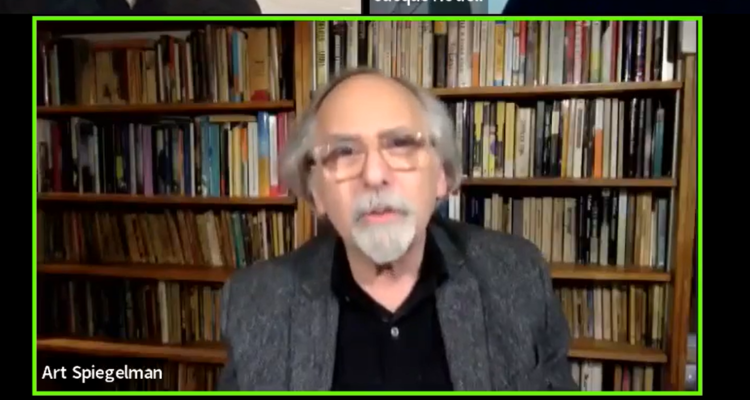Pulitzer Prize-winning Holocaust graphic novel’s author says it’s important to face reality, however uncomfortable it can make the reader.
By World Israel News Staff
Art Spiegelman, the author of Pulitzer Prize-winning Holocaust graphic novel Maus, spoke with representatives from the Jewish Federation of Greater Chattanooga (JFGC) and Christian groups in an online conference, after a local Tennessee school board banned his book from their curriculum.
The school board had cited “nudity” and “inappropriate language” as justification for the ban.
Spiegelman said that he poured over transcripts of the McMinn County school board meeting where the decision to ban Maus was made and that he does not believe “it’s the dirty words that are really scaring them.”
“At first I thought it was joke…because to complain about these relatively mild words” seemed like a minor detail in a book which recounts genocide, mass imprisonment, and other realities far more disturbing than profanity.
He said he believes the real reasons the book was banned stem from parents’ unease with the ugly realities of the Holocaust and a resistance to facing the dark and evil side of humanity.
Referring to the transcript he read of the meeting, Spiegelman said parents talked about replacing Maus with a book that depicts Americans as the heroes of the Holocaust and using lessons about the genocide to paint the U.S. in a positive light.
“Even if they say they’re willing to teach the Holocaust, they want a fuzzier, warmer, gentler Holocaust that shows how great the Americans were,” he said.
He noted that the U.S. was reluctant to take measures to stop the extermination of Jews at death camps and that Russia liberated prisoners at Auschwitz, where Speigelman’s father had been incarcerated.
“This is a dangerous world. It’s getting more dangerous. Are you going to try to confront it in a way that’s useful, or hide your head in myths and stories that are heartwarming?” he asked.
The author said he is against censorship in all forms and that forming one’s own opinion based on a diverse array of books is a crucial step towards developing critical-thinking skills.
“Banned books are the books to seek out first,” Spiegelman said. “Keep your nose in a book, and keep other peoples’ noses out of which books you choose to stick your nose into.”




